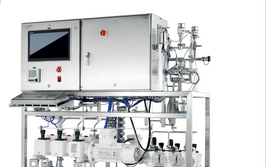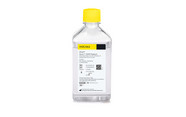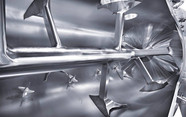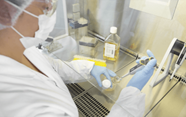
Why don’t immunotherapies work for everyone? The answer isn’t entirely clear – but new research published in Science sheds some light (1). According to Lukas Mager, a senior postdoctoral researcher at the University of Calgary and first author of the paper, specific bacteria in the gut microbiome play a significant role in the success of immunotherapies in treating certain cancers.
“Immune checkpoint blockade (ICB) treatment is used with great success in some tumors, but not all cancer patients respond due to primary – and later secondary – resistance to these therapies,” Mager says. “Recent studies have shown that the efficacy of ICB therapy depends on specific bacteria, but it remains unclear how they elicit this enhanced response.”
Mager and his colleagues decided to investigate the role gut microbes play in ICB treatment efficacy and found that certain bacteria produced a metabolite called inosine, which enhances the effect of immunotherapies in cancer. In mice, inosine – together with proinflammatory stimuli and checkpoint blockade immunotherapy – increased the antitumor capacities of T cells in multiple tumor types, including colorectal and bladder cancer, as well as melanoma.
Looking forward, the team hopes to translate their ICB-enhancing microbes to the clinic, but Mager sees challenges ahead. “We and others have identified several different bacteria and a metabolite that could be used as an ICB-adjuvant treatment in clinics. However, it remains to be seen which bacterium or mix of bacteria is most efficient and safe in humans.” Further to this, the mode of application will likely require optimization to overcome colonization resistance in patients and to allow for the stable integration of ICB-enhancing bacteria in sufficient quantities over time.
The researchers are also investigating the microbiomes of tumors themselves. “Recent work has shown that tumors have their own distinct microbiomes (2). We have also observed differences between the fecal- and tumor-associated microbiome. Arguably, these tumor-infiltrating bacteria will have a strong impact on local tumor immunity,” says Mager. He expects future trials to examine the likely intimate relationship between these bacteria and the immune system.
- L Mager et al., Science, 369, 1481 (2020).
- D Nejman et al., Science, 368, 973 (2020).
After finishing my degree, I envisioned a career in science communications. However, life took an unexpected turn and I ended up teaching abroad. Though the experience was amazing and I learned a great deal from it, I jumped at the opportunity to work for Texere. I'm excited to see where this new journey takes me!


















